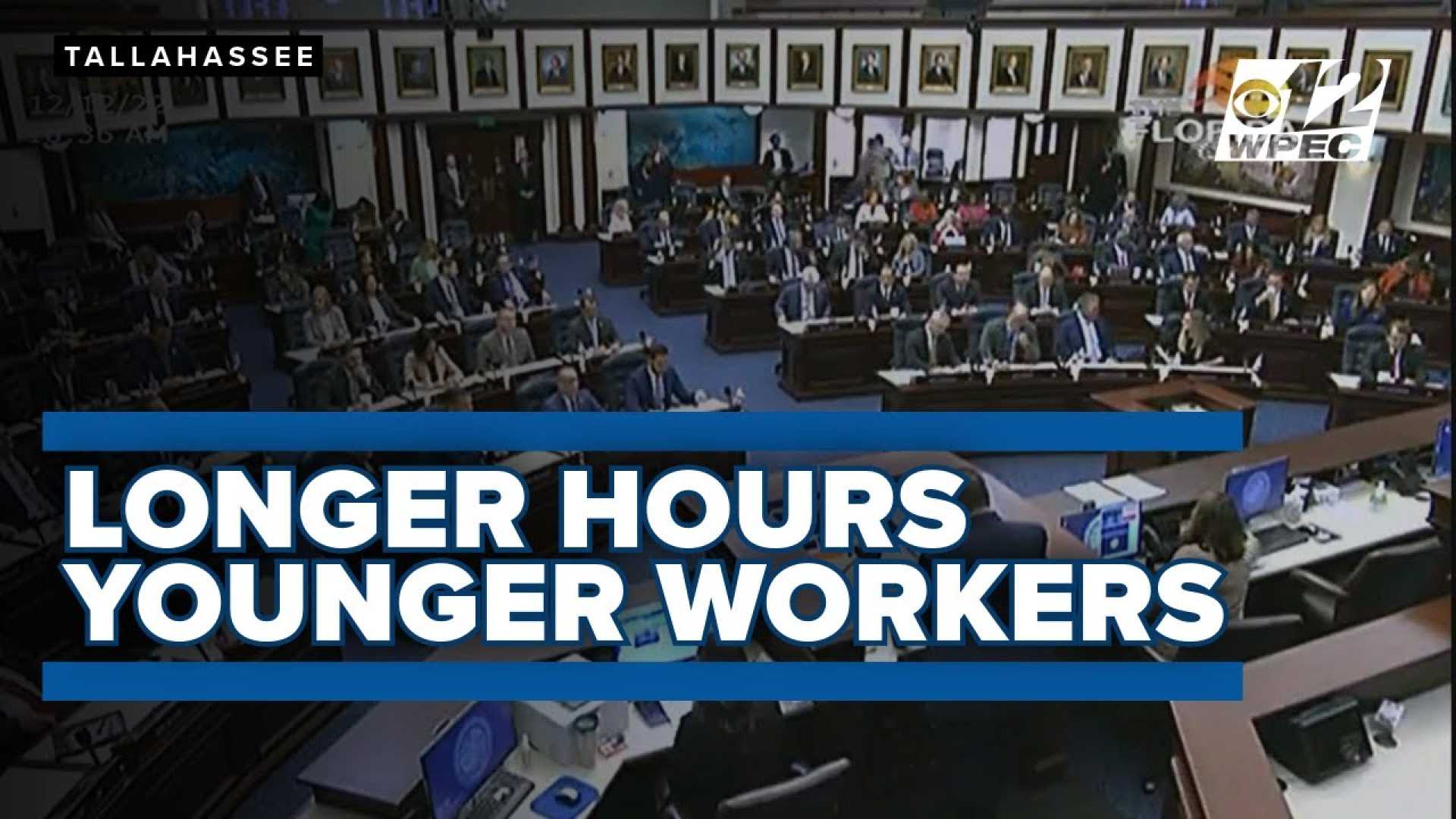News
Florida Senate Advances Bill to Relax Child Labor Laws Amid Workforce Shortages

TALLAHASSEE, Fla. — Florida lawmakers are poised to dramatically change the state’s child labor laws as they navigate a labor shortage attributed to stricter immigration policies. The Florida Senate approved Senate Bill 918 on Tuesday, which would allow teenagers as young as 14 to work overnight shifts and remove various restrictions for older minors.
The legislation aims to alleviate labor shortages by permitting 16- and 17-year-olds to work more than eight hours on school nights and up to 30 hours a week without mandated breaks. Currently, minors are prohibited from working before 6:30 a.m. or after 11 p.m. on school days.
Sen. Jay Collins, R-Tampa, who sponsors the bill, emphasized that the changes prioritize parental rights, stating, “Parents should have a say in what’s best for their kids at 16 and 17 years old.” Collins argued that the bill aligns Florida’s laws with federal regulations, specifically the Fair Labor Standards Act (FLSA), which offers protections to young workers.
“What protections would remain in your bill for a minor?” countered Sen. Carlos Guillermo Smith, D-Orlando, expressing concern that the bill could expose vulnerable teenagers to exploitation by employers.
The new bill also allows homeschooled teens and those with high school equivalency diplomas to enter the workforce more freely. Critics argue that the changes could pressure teenagers to work extended hours, leading to academic struggles and sleep deprivation.
“I’m all for after-school agricultural work, but if I had my way, I’d make sure they stay in school too,” said Mick Gnaegy, owner of Mixd Greens, who supports youth employment yet emphasizes the importance of education.
Governor Ron DeSantis has publicly supported the measure, linking it to a broader strategy of replacing immigrant labor with local workers. “Why do we say we need to import foreigners, even import them illegally, when teenagers used to work at these resorts?” he stated at a recent event.
The push for easing child labor laws follows a trend seen in several other states, many led by Republican governors. For example, Arkansas has also rolled back restrictions on child labor in recent years.
Despite arguments that these changes could help address labor shortages, opponents point out that historical exploitation in jobs typically filled by young people raises ethical concerns. The bill must clear two additional committee reviews before it heads for a vote in the full Senate.












